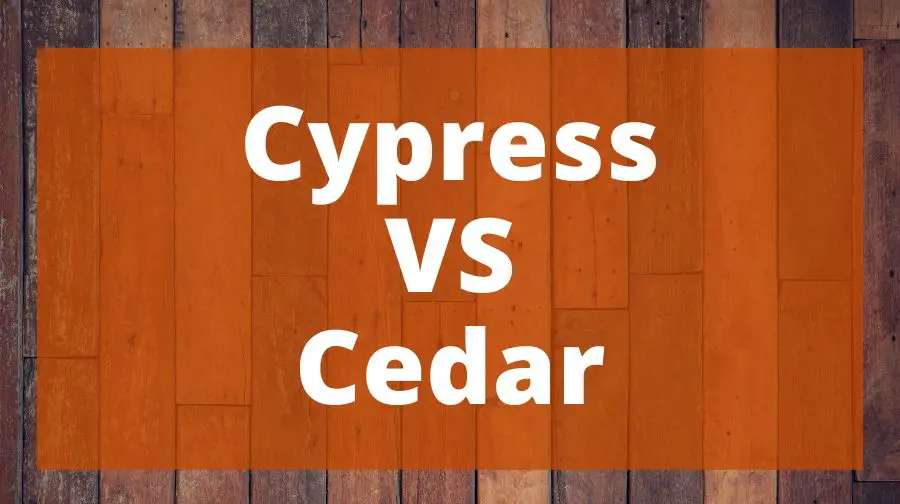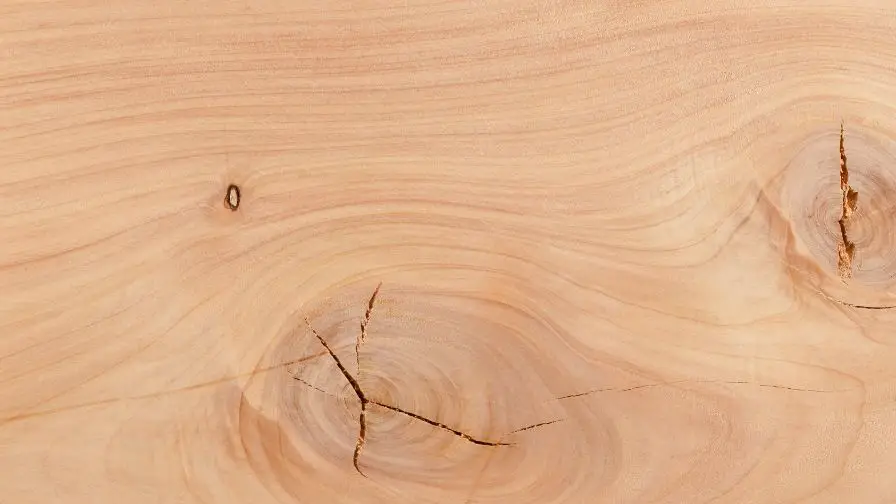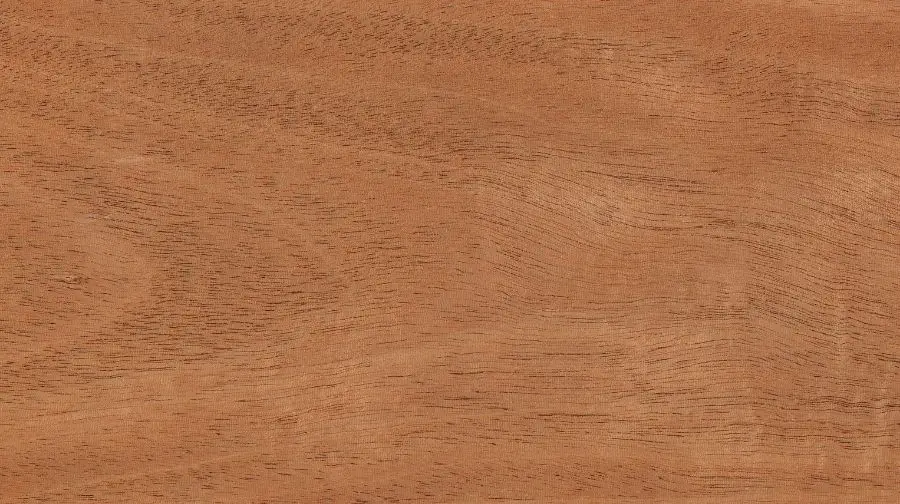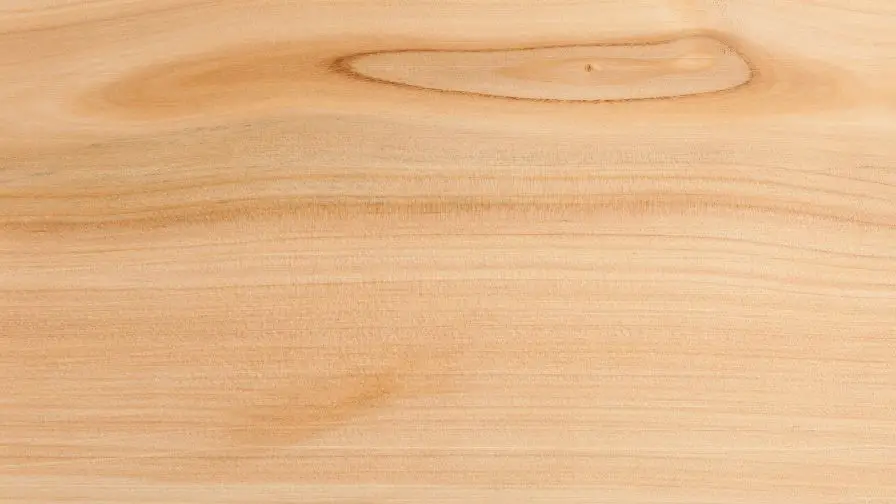
When it comes to choosing the right type of wood for your project, it can be difficult to decide which is the best option. Cypress and cedar are two of the most popular types of wood, but which one is better?
In this blog post, we will compare Cypress vs Cedar and discuss their pros and cons. We will help you decide which type of wood is right for your project!
What Is Cypress Wood
Cypress is a conifer that grows in swamps and wet areas in the southeastern United States. Cypress wood has a natural resistance to insects. Cypress is often used for boat building, decking, siding, furniture, and millwork. Cypress wood is light brown to yellowish brown in color with a straight grain. Cypress is easy to work with and takes nails and screws well. It is an excellent choice for exterior use because it is dimensionally stable and resists rot and insect damage.
Cypress is an evergreen tree that can grow up to 150 feet tall. Cypress wood has a density of 33 pounds per cubic foot. Cypress wood has a low shrinkage rate, which makes it an excellent choice for exterior use. Cypress is also one of the few kinds of wood that float in water.

Subscribe to Big Cypress NPS on YouTube
What Is Cedar Wood
Cedar is a durable, rot-resistant wood that has been used for centuries to build everything from houses to boats. The most common type of cedar is western red cedar, which grows in the Pacific Northwest region of the United States. Cedar is prized for its tight grain and rich color, and it is often used as a decorative accent in furniture and cabinetry. Cedar is also a popular choice for outdoor projects such as decks, fences, and siding.
While cedar is an excellent building material, it does require some maintenance to keep it looking its best. Cedar should be cleaned and sealed on a regular basis to protect it from the elements. It is also important to note that cedar is not as immune to insect damage as Cypress, so it should be treated with a quality insecticide if you live in an area where insects are a problem.
If you’re looking for beautiful and durable wood for your next project, cedar is a great choice. Just be sure to take care of it and you’ll enjoy its beauty for many years to come.

Subscribe to Mean’s Woodshop on YouTube
Cypress vs Cedar – Price
Cypress is a mid-ranged priced wood, while Cedar is more modestly priced. Cypress is typically only slightly more expensive than Cedar, making it a great option for those on a budget. However, Cypress does have a few drawbacks that may make it less appealing for some.
Cedar is more widely available and therefore may be less expensive. But if you live in areas where cedar is not readily available, it may be more expensive. However, both kinds of wood are durable and have a natural resistance to rot and decay, making them a good choice for outdoor projects.
Cypress vs Cedar – Janka Hardness
When it comes to wood, there are different ways to measure its hardness. The Janka hardness test is one of the most common ways. It measures the force required to press a steel ball into the wood. The higher the number, the harder the wood.
So, which is better when it comes to Janka hardness – cypress or cedar?
Cypress has a Janka hardness of 510 lbf. Cedar has a Janka hardness of 320 lbf. So, Cypress is definitely the harder of the two kinds of wood.
But does that mean it’s better? Not necessarily. Cedar is still a very hard wood. And it has other advantages too that you need to take into consideration. So, it really depends on what you’re looking for in wood.
Cypress vs Cedar – Wood Type
Cypress species is called Cupressus sempervirens. Cypress is a softwood that’s part of the conifer family. Cypress grows in wetland areas of the southern United States. Cypress is a durable wood that’s resistant to rot, insects, and decay.
Cedar species is called Cedrus deodara. Cedar is a softwood that’s part of the Cypress family. Cedar grows in the Himalayas. Cedar is a durable wood that’s resistant to rot, insects, and decay.
Both Cypress and Cedar are used for outdoor projects because of their natural resistance to rot and decay. Cypress is the better choice for projects near water because it’s more resistant to rot. Cedar is the better choice for projects in dry climates because it’s more resistant to insects and decay.
Cypress vs Cedar – Tree Size
Cypress can grow to be quite large, sometimes reaching heights of over 150 feet. Cedar, on the other hand, is a much smaller tree; the tallest cedar only grows to about 40 or 50 feet. This difference in size means that cypress is better suited for large projects, such as construction and furniture making, while cedar is better suited for smaller projects, such as crafts and woodworking.
Another difference between these two woods is their weight. Cypress is a very dense wood, which makes it strong and durable. Cedar is much lighter, making it easier to work with. This can be a benefit or a drawback, depending on what you are using the wood for. If you need something lightweight and easy to maneuver, cedar is the better choice. If you need something that is strong and will last a long time, Cypress is the better choice.
Cedar Wood Characteristics: Should You Buy Cedar Furniture?
Subscribe to DutchCrafters Amish Furniture on YouTube
Cypress vs Cedar – Location
There are a few key things to consider when choosing between cedar and cypress for your location. Cedar is more widely available, but cypress is more resistant to rot and insect damage. Here’s a closer look at how these two kinds of wood compare in different locations:
– Cedar is a softwood that grows in the northern hemisphere.
– Cypress is a hardwood that grows in the southern hemisphere.
– Cedar is more widely available than cypress.
So, which kind of wood should you choose for your location? If you’re looking for durable wood that will resist rot and insect damage, cypress is the better choice. However, if you’re looking for a more widely available wood, cedar is the way to go. Whichever wood you choose, make sure it’s the right type of wood for your location.
Cypress vs Cedar – Color
When it comes to wood, there are many different factors that come into play. One of the most important is color.
Cedar is a light-colored wood, ranging from pale yellow to white. Cypress is a bit darker, with a reddish or brown tint.
Before deciding which wood is better, it’s important to remember that wood can change color over time. Cedar is known for turning grayish-white as it ages, while cypress tends to stay closer to its original color. This means that, in the long run, Cypress may actually be the better choice in terms of color retention.
So, which is the better wood when it comes to color? It really depends on what you’re looking for. If you want a wood that will retain its original color over time, Cypress is the better choice. However, if you’re looking for light-colored wood, Cedar may be a better option.
Cypress vs Cedar – Grain
Both have their own unique grain patterns that can add character and charm to any space. So, which is the better wood when it comes to grain?
Cypress has a straight grain pattern that is interlocked. This gives it a medium to coarse texture. Cedar likewise has a straight grain. It also has knots that can add to its character.
It really depends on your personal preference. If you prefer a more uniform look, Cypress might be the better choice. However, if you like the added character that knots can provide, Cedar could be the better option for you.
Cypress vs Cedar – End Grain
Cypress wood end grain is very course, with large pores. The wood is also very oily, which can make it difficult to get a good finish. Cedar end grain is much finer, with smaller pores. The oil content is also lower, so it’s easier to work with.
Cypress wood is also more resistant to rot and decay than cedar. Cedar is more susceptible to insect damage, but it’s not as prone to rot.
Incredible Boards From A Rare Cedar
Subscribe to Fall Line Ridge on YouTube
Cypress vs Cedar – Rot Resistance
Cedar is a softwood that is naturally resistant to rot and decay. It is often used in outdoor applications such as fencing, decking, and siding. Cedar is also a popular choice for hot tubs and saunas because it can withstand high temperatures and humid conditions.
Cypress is another type of wood that is known for its rot resistance. Cypress trees are native to wetland areas and their wood is often used in marine construction. Cypress is also a popular choice for outdoor furniture and decking because it is resistant to rot, decay, and insects.
So, which is the better wood when it comes to rot resistance? Both cedar and cypress are excellent choices for outdoor applications. However, cypress may be the better choice for applications where the wood will be exposed to high humidity or moisture. Cedar is also a good choice for hot tubs and saunas. If you are looking for a rot-resistant wood for your next project, consider using cedar or cypress.
Cypress vs Cedar – Odor
When it comes to odor, which is the better wood?
Here’s a comparison of the two kinds of wood’s odors.
Cedar has a very distinct smell. Some people say it smells like a campfire, while others say it smells like a cedar forest. Cypress, on the other hand, has a sour odor. Cypress is also known to cause headaches and dizziness in some people.
Cypress vs Cedar – Sustainability
Both cedar and cypress are considered to be sustainable woods. Cedar is a renewable resource that grows quickly, and cypress is a long-lasting wood that doesn’t require chemicals or treatments to stay strong.
When it comes to sustainability, the better option is cypress. Cypress is a more durable wood, meaning it will last longer. Cedar is also a rot-resistant wood, but it’s not as durable as cypress. Cedar will start to show signs of wear and tear after about 15 years, while cypress can last up to 30 years.
Cypress vs Cedar – Uses
Cypress is a softwood that is commonly used in exterior construction. Cypress is also often used for exterior furniture and docks too. It is also a popular choice for boatbuilding because it is a durable wood that can withstand being in the water. It is also used to make veneers and interior trim.
Cedar is a durable softwood that is often used for making carvings. It is also a popular choice for closet and chest lining and fence posts. It is naturally resistant to rot and insects, which makes it a good choice for outdoor projects. It is also used in making birdhouses and pencils.
When it comes to choosing between Cypress and Cedar, it really depends on the project you are working on. If you need durable wood for an exterior project, Cypress is a good choice. If you need beautiful wood for carving or interior trim, Cedar is a good choice. Whichever wood you choose, make sure to get it from a reputable source.
Cypress vs Cedar – Related Species
Related species of Cypress trees include the bald cypress, pond Cypress, and Montezuma Cypress. All three trees are native to North America and are members of the Cupressaceae family.
The bald cypress is the most widely distributed of the three species, with a range that extends from southeastern Canada to eastern Mexico. The pond Cypress is found mainly in the southeastern United States, while the Montezuma Cypress is native to Mexico and Central America. All three species are evergreen trees that grow to moderate heights, with the bald cypress being the tallest of the three. Cypress trees are known for their striking appearance, with their dark green needles and distinctive cones.
Related species of the Cedar tree are the African Juniper, Southern Redcedar, and Alligator Juniper.
The African Juniper is native to the Atlas Mountains in North Africa, while the Southern Redcedar is found in the southeastern United States. The Alligator Juniper is native to the southwestern United States and Mexico. all of these species are members of the Cypress family.
A Beginners Guide to Cedar – One of the Most Versatile Woods Around!
Subscribe to DIY with Dave on YouTube
Cypress vs Cedar – Pros and Cons
The pros of cypress wood include its durability, strength, and resistance to rot and insects. Cypress does not require any special treatment or finishes to protect it from the elements.
The cons of cypress wood include its high cost and limited availability. Cypress is also susceptible to cupping and warping if it is not properly dried before use.
The pros of cedar include its natural beauty, resistance to rot and insects, and availability. Cedar is also easy to work with and can be stained or painted to match your project’s needs.
The cons of cedar include its high cost, susceptibility to warping and cupping, and the fact that it is not as strong as cypress.
Is Cypress Better Than Cedar?
In most situations, Cypress is better than Cedar. Cypress is more dimensionally stable than Cedar, Cypress doesn’t crack as much as Cedar, and Cypress has natural oils that make it resistant to rot and insects. Cypress is also less likely to cup or warp as compared to Cedar.
Is Cypress More Expensive Than Cedar?
Yes, Cypress is more expensive than cedar. The reason for this is that Cypress is a very slow-growing tree. Cypress can take up to 200 years to reach maturity, whereas cedar only takes around 30-40 years. Cypress is also more difficult to harvest because the trees are so tall and the wood is so dense.

Is Cypress A Good Outdoor Wood?
Yes, Cypress is a good outdoor wood because it is naturally rot and insect resistant. Cypress can be used in a variety of ways in your outdoor space – from structural elements to furniture and even accents like planters. Cypress is also a lightweight wood, making it easy to work with for projects like building a deck or pergola.
If you’re looking for attractive, durable wood for your next outdoor project, Cypress is a great option.
Is Cypress A Hardwood Or Softwood?
Cypress is a softwood, but it is one of the hardest and most durable softwoods. Cypress wood is often used in construction and furniture-making because of its strength and rot resistance. Cypress is also a popular choice for woodworking projects because it is easy to work with and takes stains and finishes well.



